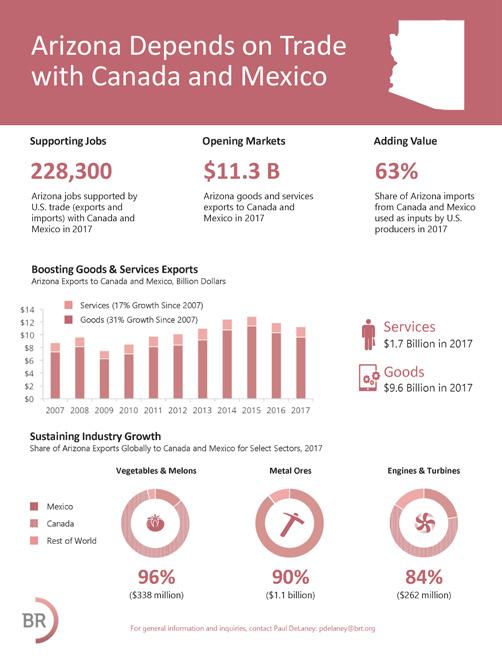
3 minute read
USMCA COMES INTO FORCE
constrained revenue. • In too many cases, small businesses in low-income and rural areas, as well as those without traditional banking relationships – including minority-owned businesses had difficulty accessing the PPP. The bipartisan Recharge and Empower Local Page 4 of 18 Innovation and Entrepreneurs Fund (RELIEF) for Main Street Act would provide $50 billion to seed and scale locally relief programs for small employers. The Chamber urges Congress to pass this initiative. • Replenish the SBA’s Economic Injury Disaster Loan (EIDL) program and require SBA to remove the $150,000 loan cap for the program that is authorized to provide loans up to $2 million. Providing Additional Relief for Employers: • Congress can build on the aid provided in the CARES Act to help employers address urgent liquidity needs, including by allowing the monetization of additional tax attributes like general business credits. This would provide businesses timely access to tax benefits existing on their books. In addition, Congress should provide tax relief for losses due to the Coronavirus pandemic; and modify international tax provisions to maximize the benefits of CARES Act tax relief. • The CARES Act created an Employee Retention Tax Credit (ERTC) that provided an effective $5,000 refundable tax credit to employers negatively impacted by the economic fallout from the pandemic. Congress should increase the size of the credit, make the credit more flexible by allowing small and midsize employers to claim the credit irrespective of whether the employee is “providing services,” and expanding the universe of eligible employers by reducing the reduction in gross receipts required to access the credit. Congress can simultaneously make the expanded credit more targeted by reducing the benefit for employers who are experiencing less of a revenue loss. • While the CARES Act mostly focused on aiding small businesses with their payroll costs, for many, their fixed expenses, like rent, are a significant burden. At the same time, revenue is constrained as a result of social distancing requirements. Congress should consider a modest addition to the ERTC for ERTC eligible employers to cover a limited amount of fixed costs. • As part of the CARES Act, numerous tax provisions were enacted on a temporary basis to help businesses address liquidity issues. Given the expected time required to return to the pre-pandemic economy, a further extension of these tax provisions is
The USMCA has come into force on July 1st of this year, marking a new era of trade for our state of Arizona. The United States-Mexico-Canada Agreement, or USMCA, replaces the current NAFTA agreement that governed trade in North America. It aims to create a more balanced environment for trade, support high-paying jobs for Americans, and grow the North American economy. The USMCA contains modern provisions in important new chapters on digital trade, good regulatory practices, cyber security, small and medium-sized enterprises, environment, and labor. The new digital trade chapter contains the strongest disciplines of any international agreement, providing a firm foundation for the expansion and investment in innovative products and services where Arizona companies and the United States hold a competitive advantage. The USMCA strengthens and modernizes intellectual property protections and increases statuary penalties for violating trade secrets or trading counterfeit goods, protecting the intellectual property rights of businesses. More than 228,000 jobs in Arizona are dependant on trade and investment with Mexico and Canada, with a total two way trade of more than $20 billion in the year 2018. Since NAFTA, trade between the North American partners has flourished, evidenced by a 296.9 percent increase in trade with an accompanying 280.8 percent growth of exports to Canada and Mexico as well. To learn more about the USMCA, please visit www.trade.gov/usmca and www.usmcanow.org/






